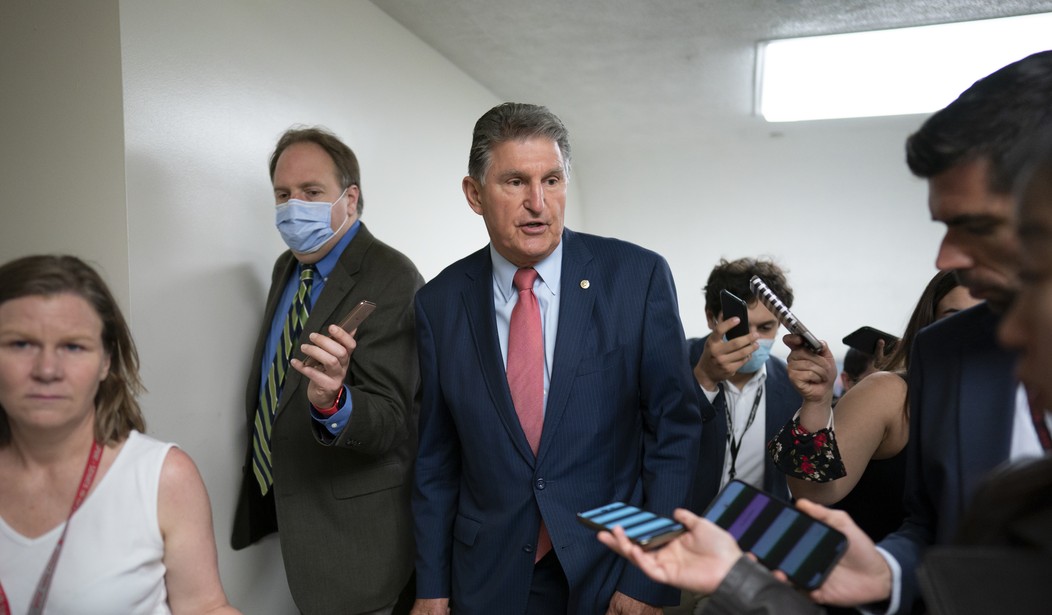Senator Joe Manchin is a Democrat serving in the very, very red state of West Virginia. He’s the only Democrat holding statewide office and the only Democrat in the entire West Virginia delegation. His political career spans nearly 40 years starting as a state representative in 1982.
At that time, West Virginia was a solid blue Democratic state. But as the national Democratic Party moved further and further left until it fell off a cliff, Manchin remained a representative of his conservative constituents.
Unlike Joe Biden, who abandoned his moderate conservative political beginnings to embrace the radical left, Manchin keeps plodding along, singing the same bipartisan tune he’s been pushing for 40 years.
West Virginians seem to approve of his bipartisanship but doubt it means anything in modern America.
Conversations with more than 15 West Virginians a day after Manchin told CNN he has no intention of changing his approach, revealed both a deep respect for Manchin’s desire for bipartisanship and a growing impatience that questioned whether such agreement was possible any longer.
“As much as I appreciate Joe’s ideal — maybe that is where his heart is at and maybe that is because of his roots — there has to come a time when you have to realize (Republicans) are not going to sit down and hold hands and sing kumbaya,” said Donna Costello, a longtime friend of the Manchin family. “And you have to do what is in the best interest of what put you there.”
“The best interest of what put you there” isn’t the Democratic Party — the same party of Rep. Alexandria Ocasio-Cortez and Senator Bernie Sanders. Those names are poison in the Mountain State and Manchin opposes their agenda as much as he opposes any Republican ideas.
And those far-left Democrats are enraged. The vitriol they are spewing at Manchin these days is as toxic as anything said about Donald Trump. One radical, Rep. Mondaire Jones, compared Manchin’s stance to “preserving Jim Crow.”
Manchin’s op-ed might as well be titled, “Why I’ll vote to preserve Jim Crow.” https://t.co/pS1xEvkwEz
— Mondaire Jones (@MondaireJones) June 6, 2021
What they don’t realize or ever acknowledge is that Manchin is saving the Democratic Party from itself. As a conservative in a radical liberal party, Manchin is trying to thread the needle between his constituents and the radicals who now want his head. And he knows that the Democrats’ voting rights bill would probably cost the Democrats their congressional majorities in 2022 and they would be hard-pressed to beat Trump or any other Republican in 2024.
Never mind his own fate if he runs for re-election in 2024. Mr. Manchin knows that passing the left’s agenda on a partisan vote in a deeply divided country would produce a political backlash that would cost Democrats control of Congress in 2022. Other Democrats, especially those who hold swing seats in the House, quietly agree with him. They’re happy to let Joe take the political heat.
But Democrats shouldn’t fear, nor Republicans gloat, that this means the end of the Biden agenda. Mr. Manchin’s filibuster position—shared by Arizona’s Kyrsten Sinema—may kill some radical legislation. But Democrats still have a budget reconciliation card to play that requires only 50 votes plus Vice President Kamala Harris as a tie-breaker.
Indeed, Democrats in the Senate are quiet about Manchin’s position on voting rights, because the West Virginia senator always has his very own nuclear option: bolting the Democratic Party and joining Republicans to give them a majority.
Former Trump campaign aide Steve Bannon thinks the GOP should go for it.
“Joe Manchin is not going to fold on this,” he said. “I actually believe there should be a major effort led by guys like Rick Scott to bring Joe Manchin into the Republican Party right now. Bring him into the Republican Party, make sure that he’s a welcome member of the Republican Party.”
If this kind of talk continues, Bannon may get his wish.
“Anger at Manchin and Sinema, when it comes to response, it’s nearly as strong as what we saw under [former President] Trump,” said Brianna Wu, executive director of Rebellion PAC, which targets insufficiently radical Democratic incumbents for primary defeat.
What can Biden and the Democrats do? Not very much if they want Manchin to continue to vote with the Democratic caucus. On important procedural votes, Manchin is vital to maintain Democratic Party perks and privileges in the upper chamber. They don’t want to go back to being a minority party, and angering Manchin may very well trigger a response they won’t like.
So for the moment, the radicals will stew, Biden will bide his time, and the Republicans will walk on eggshells trying not to look like they’re eager for Manchin to leap across the aisle.
How much longer this can go on is anyone’s guess.










Join the conversation as a VIP Member